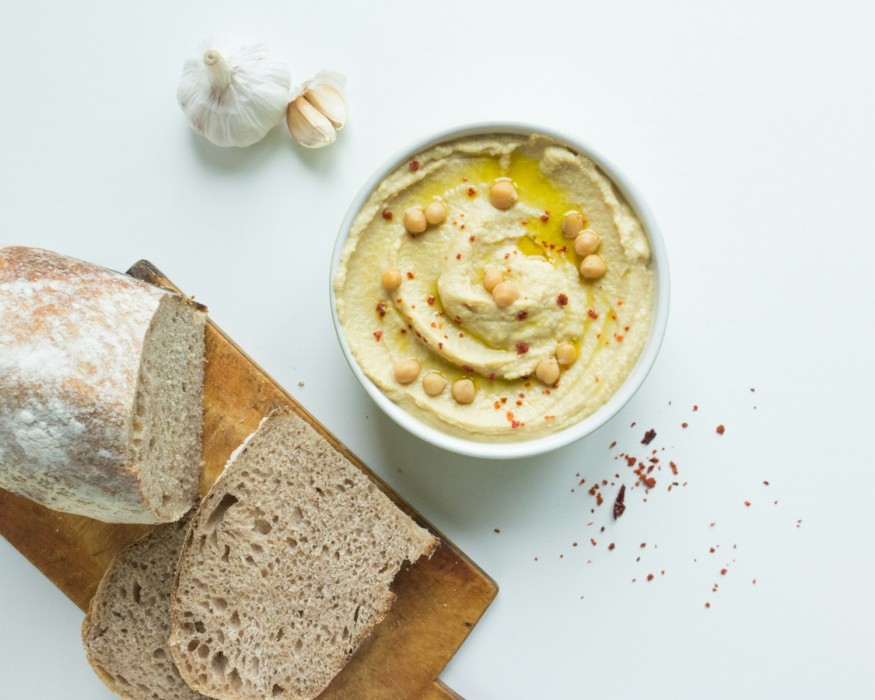
Snacking has evolved significantly in the quest for healthier eating habits and effective weight management. Snacks are no longer seen merely as indulgences but as essential components of a balanced diet.
Central to this shift is the understanding of how different macronutrients affect satiety. Protein stands out for its remarkable ability to curb hunger. This article delves into the science behind protein's role in snack satisfaction and its impact on hunger regulation.
The Role of Protein in Nutrition
Protein is a fundamental macronutrient essential for various bodily functions. It plays a critical part in producing enzymes and hormones, building and repairing tissues, and supporting immune function. Beyond these physiological functions, protein has garnered attention for its impact on appetite regulation and satiety.
Protein and Satiety: The Biological Mechanisms
Hormonal influence
- Ghrelin: Also called the "hunger hormone," ghrelin stimulates appetite. Protein consumption has been shown to suppress ghrelin levels more effectively than carbohydrates or fats, leading to reduced hunger.
- Peptide YY (PYY) and Glucagon-Like Peptide-1 (GLP-1): These hormones signal fullness to the brain. Protein intake boosts the release of PYY and GLP-1, contributing to enhanced satiety.
Thermic effect of food (TEF)
Protein has a massively higher thermic effect than fats and carbohydrates, requiring more energy to digest, absorb, and process. This increased energy expenditure can contribute to a greater feeling of fullness.
Amino acids and neurotransmitters
Amino acids, the building blocks of protein, produce neurotransmitters like serotonin, which influence mood and appetite. Tryptophan is an amino acid you can find in protein-rich foods. It is a precursor to serotonin and can help regulate appetite.
Protein-Rich Snacks and Hunger Management
Incorporating protein-rich snacks into one's diet can effectively manage hunger and reduce overall calorie intake. Several studies have highlighted the benefits of protein snacks in promoting satiety and aiding weight management.
Snack timing and composition
Consuming protein-rich snacks between meals prevents overeating at subsequent meals and can help maintain stable blood sugar levels. Research indicates that people who consumed high-protein snacks experienced reduced hunger and ate fewer calories at dinner than those who consumed high-carbohydrate snacks.
Examples of protein-rich snacks
- Greek yogurt with nuts or seeds
- Cottage cheese with fruit
- Hard-boiled eggs
- Hummus with vegetables
- Protein bars or shakes
- Edamame
- Beef jerky
Comparative Studies: Protein vs. Carbohydrates and Fats
Research comparing the effects of protein, carbohydrates, and fats on satiety supports the superior role of protein in hunger regulation.
- Short-term satiety: People who consume a high-protein breakfast will likely experience greater fullness and reduced calorie intake throughout the day than those who consume a high-carbohydrate breakfast.
- Long-term weight management: Compared to those on a high-carbohydrate diet, individuals on a high-protein diet are likely to lose more weight and may experience greater reductions in hunger and desire to eat.

Practical Tips for Incorporating Protein into Snacks
Incorporating protein into your snacks can effectively manage hunger, maintain energy levels, and support overall health. Here are some practical tips to help you include more protein in your snacking routine:
Plan and prep ahead
- Meal prep: Prepare protein-rich snacks in bulk at the beginning of the week. Items like hard-boiled eggs, grilled chicken strips, or homemade protein bars can be portioned out and stored for easy access.
- Portable snacks: Pick snacks that are easy to take, such as single-serving packs of nuts, a beef jerky box, cheese sticks, or yogurt cups. Having portable options ensures you have a protein boost wherever you are.
Choose protein-rich ingredients
- Dairy products: Incorporate Greek yogurt, cottage cheese, or string cheese into your snacks. These dairy products are protein-rich and easy to pair with fruits or vegetables.
- Nuts and seeds: Almonds, walnuts, chia seeds, and sunflower seeds are excellent protein sources. They can be eaten alone or added to other snacks like yogurt or salads.
- Lean meats: Slices of turkey, chicken breast, or lean beef jerky make satisfying protein snacks. When possible, opt for low-sodium and minimally processed options.
- Legumes: Edamame, chickpeas, and lentils are plant-based proteins that can be seasoned and enjoyed as snacks. Roasted chickpeas or hummus with veggie sticks are great examples.
Combine protein with other nutrients
- Protein and fiber: Pair protein with fiber-rich foods to enhance satiety. For example, whole-grain crackers with cheese or apple slices with peanut butter provide a balanced snack that keeps you full longer.
- Protein and healthy fats: Combining protein with healthy fats can boost satisfaction. Try avocado toast with a poached egg or a handful of almonds with some dark chocolate.
Use protein supplements
- Protein supplement powder can be an excellent addition to your oatmeal, smoothies, or pancake batter for an extra protein boost. Look for high-quality protein powders with minimal added sugars and artificial ingredients.
- Protein bars: Choose bars that balance protein, fiber, and healthy fats. Be vigilant about the ingredient list, and avoid bars with excessive sugars and artificial additives.
Creative snack ideas
- Protein-packed smoothies: Blend Greek yogurt, protein powder, spinach, and frozen berries for a refreshing and filling snack.
- Egg muffins: For a portable, protein-rich snack, make mini egg muffins with vegetables and cheese.
- Nut butter with fruit: Pair your favorite nut butter (peanut, almond, or cashew) with slices of apple, banana, or pear. This combination provides a healthy mix of protein, healthy fats, and fiber.
- Cottage cheese and berries: Top a bowl of cottage cheese with fresh or frozen berries for a satisfying snack that's high in protein.
Mindful snacking
- Listen to your body: Pay attention to hunger and fullness cues. Eating protein-rich snacks when hungry can help you avoid overeating and make healthier choices.
- Portion control: Even protein-rich snacks can contribute to weight gain if consumed in large quantities. Pay close attention to your portion sizes and enjoy your snacks in moderation.
- Enjoy the process: Take the time to savor your snacks. Eating slowly and mindfully can enhance satisfaction and prevent mindless snacking.
The Role of Protein in Special Diets and Populations
- Athletes and active individuals: Protein is essential for muscle repair and recovery for those engaged in regular physical activity. Protein-rich snacks can help meet increased protein needs and support performance goals.
- Weight loss and management: Protein's ability to promote satiety makes it a valuable tool in weight loss and management. High-protein snacks can help control hunger and reduce overall calorie intake, facilitating weight loss.
- Older adults: Maintaining muscle mass becomes increasingly important as individuals age. Protein-rich snacks can help older adults meet their protein requirements and support muscle health.
Embracing Protein for Snack Satisfaction
The science of snack satisfaction underscores the pivotal role of protein in curbing hunger and promoting satiety. By influencing hormonal responses, increasing the thermic effect of food, and impacting neurotransmitter production, protein stands out as a powerful tool for hunger management.
Incorporating protein-rich snacks into daily eating habits can help control appetite, support weight management, and contribute to overall well-being. Whether for athletes, older adults, or those pursuing weight loss goals, understanding and leveraging the benefits of protein can lead to more satisfying and nutritious snacking choices.
© 2025 ScienceTimes.com All rights reserved. Do not reproduce without permission. The window to the world of Science Times.











